Questioni adopted a three year old puggle for my family two weeks ago from a shelter and we seem to be having two problems. Firstly, she whines all the time. When she staying on the couch, following you around the house, out on walks, and most disturbingly in the middle of the night in the crate. She is taken out to do her business several times a day. She freaks out and barks/ whines very loudly when I arrive home, which is not okay seeing as we live in an apartment, and a vocal correction doesn't help at all. Secondly, I will walk her for a long period of time and she will pee a few times, but she wont try to poop until we go back into the apartment, everytime.
AnswerHi Megan,
If your dog isn't doing all that she needs to during her walks, when you get back to your home you shouldn't give her the run of the house. After all, you know she still needs to "go"!
When she hasn't done everything she needs to do during a walk, upon returning home put her right in her crate, and take her outside again for another try in 15-20 minutes. It's a real pain in the neck I know, but preventing accidents from occurring in the home is a very important part of house training. Your dog needs to learn that it's NEVER acceptable to relive herself in your home.
If your dog has room to eliminate in her crate, and also lay comfortably in a clean area, the crate's too large. A dog's crate should only be large enough for it to stand up, turn around, and lay down. Any bigger and it gives the dog a place to eliminate.
It's helpful to get into the habit of talking to your dog during walks, and teach her a "cue" word. By using a "cue word" or phrase when you take your dog outside, you can teach her to eliminate on command. When you reach the toilet area walk back and forth or circle around and around. At the same time say and repeat a cue word you would like to attach to the act of your dog eliminating. Phrases like "hurry up", "do your business", etc. but just pick out a cue word or short phrase and use the same one every time. In your dog's mind you are building an association between the cue "hurry up!" and her emptying out. This is a very handy obedience training command to teach your dog.
If your dog does eliminate continue to repeat your cue word and the instant your dog finishes doing her business enthusiastically praise and reward her with a small tasty treat. Make it clear that you are very happy with him! Then start using the same cue word again, if you think your dog still needs to go to the bathroom.
In your home, clean the area where your dog has had accidents with a cleaner made to clean up urine such as Nature's Miracle, or Simple Solution. If a dog can smell where they've eliminated in the past, they will go there again.
Your dog may not pee a lot during her walks because she is female, and doesn't mark territory as male dogs are compelled to do. Just the same, give her the time she needs to relieve herself during the walk.
Your dog might just be naturally vocal, some dogs make a lot more sounds than other dogs. Since you only adopted her about two weeks ago, your dog is still adjusting to living with you. It can take a month or longer to fully adjust to a new home and family. Be patient, give your dog the attention she needs, but also work on building her confidence. It would be helpful to teach your dog some obedience commands, for this purpose. If you don't feel you can do that, enroll in a dog obedience class. Read more here: http://www.sithappens.us/index_files/Page3283.htm
Keep both farewells and return greetings very low-key, even to the extent that you ignore your dog for 10+ minutes before leaving and 3-5 minutes upon arrival. Offer low-key greeting once your dog settles down. This reduces the emotional roller-coaster many dogs experience when their owners come and go. After all, if you kiss, hug and say sad goodbyes every time you leave your dog, then celebrate your reunion at the door each time you return, the void of being alone without you will make things that much harder for your dog to be without you.
It can help to move your dog's crate so she can't see the door. Instead of "a vocal correction" get a spray bottle or water pistol. When your dog is crying or barking while crated, firmly tell her "QUIET", and if she doesn't comply give her a shot of water right in the face. A single shot should do it. The instant she's stunned into silence, happily tell her "Good Quiet!". Always reward for good behavior! A squirt of water is a good way of giving a correction, as the dog doesn't realize you're the one who's squirting her.
Don't reward barking, whining, jumping, pawing or hysterical behavior with any attention, affection or interaction (not even eye-contact). Reward calm, quiet, and non-dependent behavior with low-key praise and attention. Temporarily reduce affection for 2-3 weeks, saving the majority of your affection for when your dog complies with a command.
Get your dog used to being alone for brief - then gradually longer periods of time. Don't reinforce your dog's neediness for constant attention, particularly if your dog attempts to get attention by whining, barking, jumping on you or pawing. Give attention and affection only for good behavior. Don't scold or yell at your dog for bad behavior (your dog doesn't know why you're upset, for one thing!) Instead, ignore your dog. Silently leave the room, don't talk to your dog, and don't make eye contact with her.
If things don't begin to improve relatively soon (the next three weeks or so), please contact qualified animal behaviorist. Your vet's office or a local boarding kennel might be able to give you a referral. You don't want problem behavior to go on too long, as it can become a habit, which can be very heard to break.
I hope I've been a help.
Best of luck,
Patti

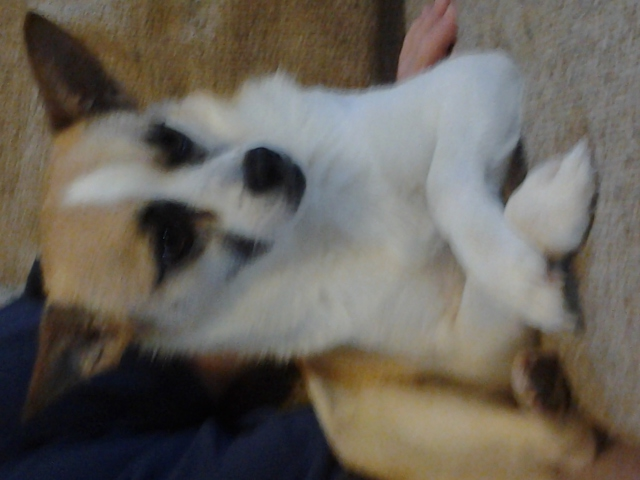 Abby
Question
Abby Abby
what breed of dog do yo
Abby
Question
Abby Abby
what breed of dog do yo
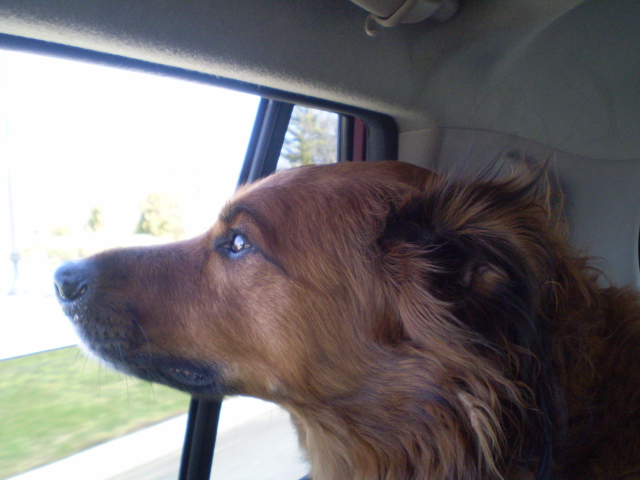 aggressive kids and dogs
QuestionI have a hyper aggressive 6 yr old who always p
aggressive kids and dogs
QuestionI have a hyper aggressive 6 yr old who always p
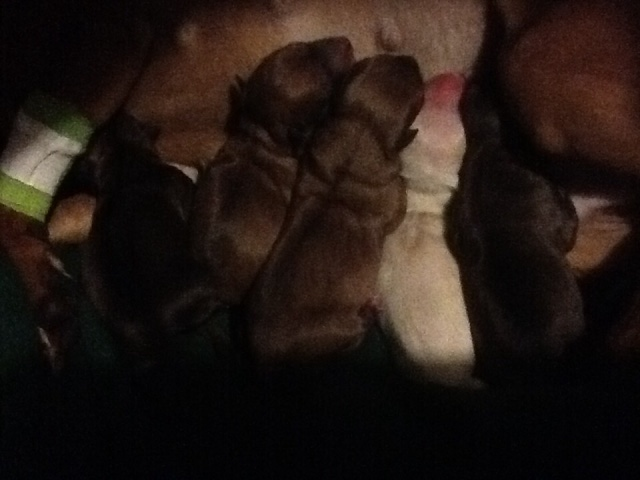 Temperature before birth
QuestionQUESTION: My female cheweenie is on day 52 of h
Temperature before birth
QuestionQUESTION: My female cheweenie is on day 52 of h
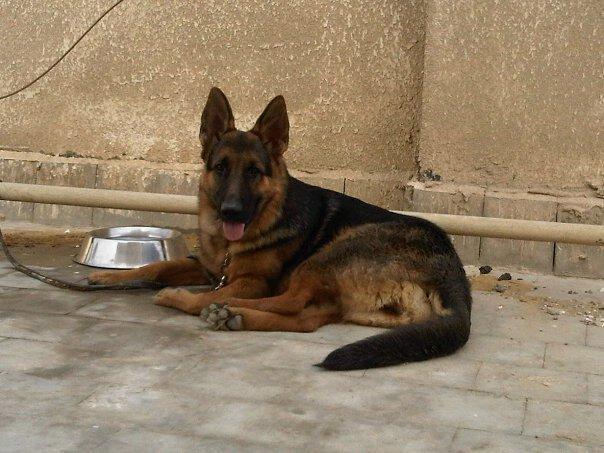 Delayed German Shepherd Heat
QuestionMy German Shepherd
QUESTION: I have a Ge
Delayed German Shepherd Heat
QuestionMy German Shepherd
QUESTION: I have a Ge
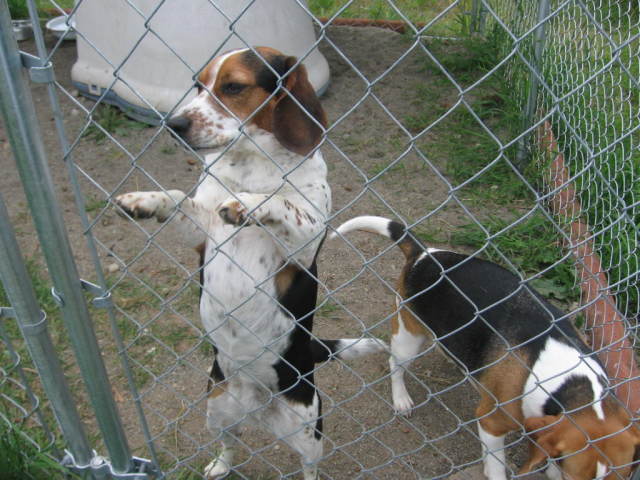 AKC
Question
Bailey and Cocoa
Hi Im Ashley Sommer. I am ten
AKC
Question
Bailey and Cocoa
Hi Im Ashley Sommer. I am ten